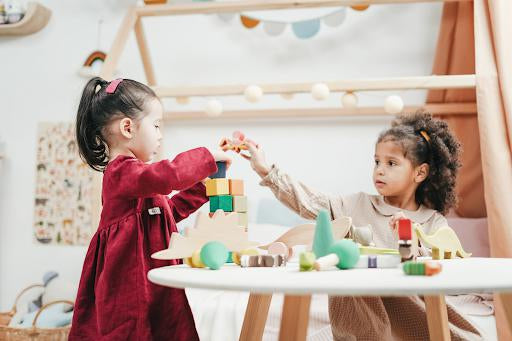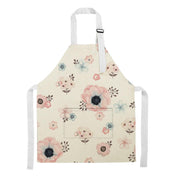Montessori Versus Waldorf: Some Education On Some Education
As a parent, you face one of the most difficult decisions of your life. In the process of making this decision, you will go on to affect multiple lives.
First and foremost, you’ll affect your child’s life, followed by your own life, then any siblings lives. Such a big decision is often viewed with doom and gloom but infact, the decision regarding your child’s education is an exciting, immersive and life changing one.
There is a multitude of options, Language Immersion school, private school, public school and two that have always had a sort of mysticism about them even though there is nothing mystical about them at all.
Okay, in the case of the Waldorf - Steiner School systems, maybe there’s a little mysticism.....
The Single Benefit of Cigarettes
In 1919, a man named Rudolf Steiner was tasked with building an educational facility at the Waldorf-Astoria Cigarette Company in Stuttgart, Germany.
At the time, Emil Molt was the managing director of the company and quite simply, the school came to be, purely because the employees had children that needed an education.
Molt followed a spiritual belief called Anthroposophy. Rudolf Steiner, coincidently, is the founder of the Anthroposophy movement. The reason many people don't quite understand what the Waldorf Education System has to offer is that in the 1920s, suggesting to teach teach children about karma, meditation and art as therapy, was absolute lunacy.
The Waldorf system itself however, is very much based around the child learning to develop artistic, practical and intellectual skills in a holistic fashion. Really it's a head, heart and hands approach to development. Think, feel and do.
 (source: bendwaldorf.com)
(source: bendwaldorf.com)
Further Into The Sphere
Steiner believed in a set of spheres that came to pass every seven years. Birth to age six, seven to thirteen, fourteen to twenty-one.
Each of these marked the individual moving into a new sphere of influence that has its own specific needs and attributes associated with it. The first overall goal is to "imbue the child with a sense that the world is good".
Learning Is Natural
For the most part, a Waldorf and Montessori classroom activity structure is much the same, especially in kindergarten. There is good opportunity for songs, games and stories at circle time.
There is opportunity for painting and other artistic works and ofcourse, there is free play and outdoor play.
Some differences between the two teaching philosophies would be that the Waldorf school is modelled to resemble a home. Natural materials are used in the classroom, which is said to encourage imagination and reinforce the child’s identification with nature.
The Imagination Super Highway
Imagination is a massive part of both ideologies and further developing the imagination leads to imaginative problem solving and troubleshooting.
Digital and electronic media is discouraged in the Waldorf school, for faculty and students, for the very reason that it has a negative effect on the mind and the imagination.

(source: learningfactor.com.au)
Onward And Upward
A massive differentiation between Montessori and Waldorf becomes obvious when a child moves on from kindergarten. Steiner believed that a child's natural growth path and development would be irreversibly affected for the negative, if abstract intellectual activity was put into place too soon.
Reading, writing and other more formal education methods were only taught when the child's temperament, memory and quality of character were shown to be ready to undertake the next step in development.
Even markers such as adult teeth coming in, were milestones marking one's ability to progress. The motto for the purpose of this phase is “imbue the child with a sense that the world is beautiful”.
A Matter Of Time
The nurturing of imagination, creativity and curiosity is paramount in the Waldorf ideology.
Given that millions of dollars are paid every year into how both sides of the brain work and to answer questions like what is creativity? what are thoughts? Waldorf education certainly encourages children to question absolutely everything. Let's look at the other side of things. Montessori education.
Montessori, Not Sorry
Dr. Maria Montessori was born on August 31st, 1870. Maria graduated from the University of Rome in 1896. After she graduated, she frequented the asylums in Rome and met with many children with mental disabilities. In 1907 the first Casa Dei Bambini (Children's House) was opened and this became the first real Montessori school.
The first classroom was equipped with very basic materials but it was Dr. Montessori's approach that made the learning methodology very different from other educational forms. Maria believed that children should care for the garden. Children should dust and sweep. Children should actively participate in practical life tasks. Maria believed that these are tasks that teach self-reliance and self-governance which are major cornerstones for the Montessori philosophy.
Maria's observations with that first classroom would to on to shape the entire way she moulded her teaching method.
Kids Crave Structure
It's an age-old saying for a reason. It's true.
By carefully watching and documenting the behaviour of the children, Dr Montessori discovered that children would rather do something practical than just sit and play with toys. If the child was focused on something interesting to them, even treats and rewards couldn't dissuade them and draw their attention away. Right then, Dr Maria learnt then that self-discipline in a child was entirely possible.
Adapt To Them
Dr. Montessori quickly implemented several changes to her classrooms based on her findings and these changes led to her method being held as it's own. Unique.
Many skills such as pet care, flower arranging and cooking became very important things to be taught and she believed these tasks brought about a child's confidence and self-worth.
Clean Body, Clean Mind
A large part of Montessori Education is also focused on the cleanliness of one's self and one’s environment. Dr. Montessori believed that cleanliness and organization were keys to success for child development.
If a child has to discover where something was put back last or can't find a desired item or tool at all, when it's needed, not only does the child lose time and possible focus, they also lose the sense of order that they so desperatly seek in so much of what they do.
Stronger Self To Others
Whilst also a large component of the Waldorf educational philosophy, the Montessori educational structure teaches children to work with others towards common goals.
Simple tasks such as helping each other put on painting smocks or double-checking of their own volition that all students are accounted for when going outside is common practice amongst Montessori peers.
Confidence Is Key
Montessori teaching leaves the child well on their way to becoming a self-regulating, self-assured, alternative considering adult, capable of adapting to almost any situation it will encounter. As can Waldorf.
So which educational method is the best for your child?
The Kids Are Alright
No matter what educational method you go with, it's important to boil your decision down to the facts. Start general. Private or public.
Then start to dive down the rabbit hole of figuring out which ideology works best for you. In the case of Montessori and Waldorf, there are some very big differences. It is however, important to note a large number of similarities.
Each has at it's core, the desire to shape a child into a person of incredible knowledge, depth, emotional richness and character. Each believe in body, mind and spirit integration creates a full person capable of having a full life.
Two Sides Of The Same Coin
If you want to split them, then really it does come down to perspective. Montessori was developed by someone using scientific practice.
Waldorf methodology was developed by a spiritual, creative thinker with a keen sense of how to help a child reach their full potential.
Get Together
Both also believe, in slightly different ways of course, in a form of colony type living. Believing that we should take care of one another, our environment and ourselves.
These teachings are only now, in this modern age, being fully realized. We are being encouraged to unplug and interact with our children and help them to interact with the world. We must teach compassion for others and ourselves.
These values are being taught by both of these two learning styles but it must also carry over out of the classroom.
It Starts At Home
With so many resources, toys and activities available, there's no reason Montessori or Waldorf style learning can't start right in your very home.
You can even just start by being more involved and inquisitive with your child and understanding how they are getting involved within their world.
The two educational methods mentioned in this article are founded on children being free to explore, inspect and question. Montessori and Waldorf education methods are just two sides to the same prism. Completely different methods and ideologies, but at the end of the day, they are both striving to develop kids who are the very best versions of themselves.
They Turned Out Fine
There is no bad decision when it comes to choosing between Waldorf or Montessori educational methods. They are just different.
You are fortunate enough to be in a place where the choice of education is offered and that in itself is a blessing. No matter what happens in your child’s academic career, your children will be absolutely fine. School, of course, shouldn't be a last-minute thought.
A child's educational path should be mapped out early on, but if things don't go according to plan, for example the local Montessori school is overbooked or there is no Waldorf School for 60 kilometres, it's not the end of the world.
It just means the responsibility falls a little more on your shoulders to teach them all of the things they would learn at a Montessori School or a Waldorf - Steiner School.
Education at Home
If you are interested in setting up your home or playroom with Montessori or Waldorf Steiner principles in mind, My Happy Helpers is the ideal place to start your journey.
With a fantastic selection of Montessori and Waldorf inspired toys and resources, your little one is sure to be kindergarten ready and beyond. Click Montessori / Waldorf educational toys to see the line of today.
Alternatively, feel free to contact our team at anytime to discuss particular toys or resources that you may be interested in.




